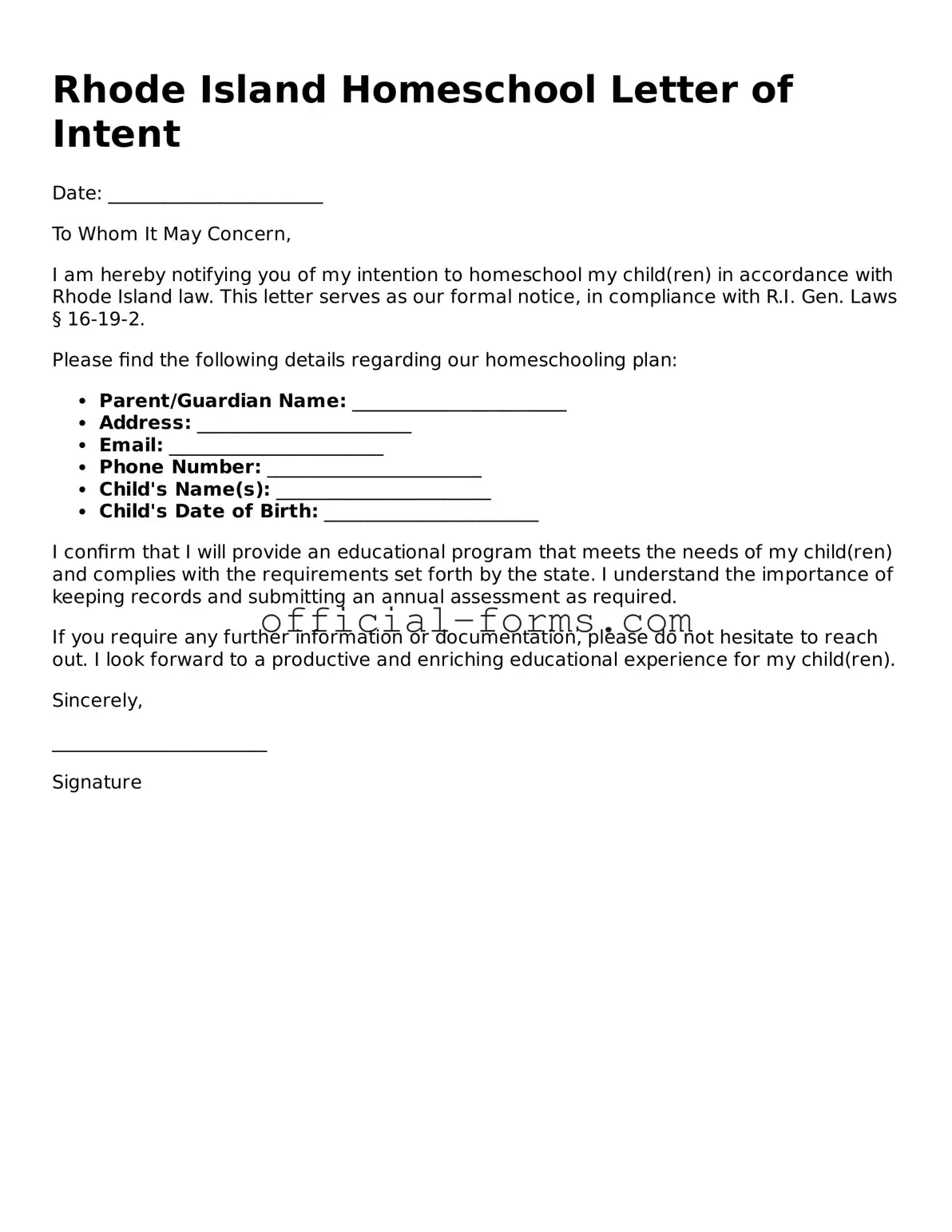Filling out the Rhode Island Homeschool Letter of Intent form can be a straightforward process, but many make common mistakes that can lead to delays or complications. One frequent error is failing to provide complete information. Each section of the form requires specific details about the child and the educational plan. Omitting any information, even minor details, can result in the form being rejected.
Another mistake is not signing the form. Many people assume that submitting the form electronically negates the need for a signature. However, Rhode Island requires a signature to validate the intent to homeschool. Without it, the submission is incomplete.
Some individuals misinterpret the deadlines associated with the form. It is crucial to submit the Letter of Intent by the start of the school year. Missing this deadline can lead to complications in starting the homeschooling process. Always check the calendar and ensure timely submission.
Inaccurate information about the educational curriculum is another common pitfall. The form asks for a brief description of the educational plan. Providing vague or unclear descriptions can lead to misunderstandings. It is essential to outline the curriculum clearly and concisely.
People often forget to include their contact information. This can create problems if the school district needs to reach out for clarification or additional information. Including a current phone number and email address is vital for smooth communication.
Some parents fail to keep a copy of the submitted form. This oversight can lead to confusion later on. Having a copy allows for easy reference and can be beneficial if any questions arise regarding the submission.
Another mistake involves not understanding the requirements for record-keeping. The form may prompt parents to provide information about their educational philosophy or approach. However, failing to document educational progress throughout the year can lead to issues during assessments.
Additionally, people sometimes underestimate the importance of following up after submission. Simply sending the form does not guarantee that it has been received or accepted. It is wise to confirm with the local school district to ensure everything is in order.
Lastly, some individuals overlook the need to update the form if there are changes in the educational plan. If adjustments are made during the year, it is crucial to notify the school district. Keeping them informed helps maintain compliance with homeschooling regulations.

